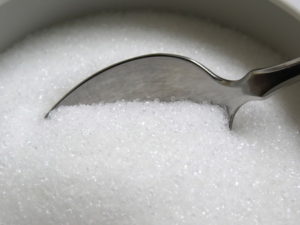July 2023 Update – Aspartame
Note: As of July 2023, aspartame has been approved by the FDA and designated safe for human consumption; however, this doesn’t rule out ongoing studies that say there still can be a cancer risk.
Taking into account the FDA ruling, it is logical to conclude that although some research hasn’t eliminated the cancer risk, the probability of acquiring this disease is extremely low.
The World Health Organization (WHO) tends to agree with this premise. According to AARP’s article “Are Artificial Sweeteners Bad for You“, WHO was quoted as saying, “an adult weighing approximately 150 pounds would need to drink, for example, between nine and 14 cans of diet soda a day to exceed that limit.”
In conclusion, there is no hard-core fact that proves aspartame is not harmful in some way, but being that not one of these organizations’ expert researchers cannot substantiate the effects of this sweetener one way or another, taking it should be left at an individual’s discretion.
March 2023 Update – Erythritol
A recent study by the Cleveland Clinic for the artificial sweetener Erythritol is possibly linked to heart attacks and strokes.
Not only has this sweetener been gaining popularity, but it has been recommended for the Keto diet as well. This study is very recent, so we are assuming those who are recommending Erythritol will be reviewing these results closely. The findings were published on nature.com.
Overview

In our previous article, we focused on sugar substitutes and calorie intake. Now let us delve a little deeper and discuss what ingredients are actually in these sweeteners and the pros and cons they may contain.
Many dieters are looking to improve their health by avoiding refined and added sugar in their recipes. With many turning to popular low-carb diets, sugar substitutes are a must! This food additive has a sweet taste, similar to sugar but contains significantly less food energy. There are many substitutes on the market with some that are natural and some that are synthetic. It is important to know the difference between these sweeteners and how they can differentially affect both your health and blood sugar.
-
-
- Aspartame
Please note the updates above, but as an FYI, we have left our previous notation about aspartame below:
“This artificial sweetener sold as Equal and Nutrasweet, isn’t without controversy about its safety. It doesn’t affect blood sugar and contains zero calories and a zero glycemic index, but those with a rare condition called phenylketonuria must avoid aspartame. Studies also found those more susceptible to headaches should also avoid it as well. A study from the University of Liverpool found that when aspartame was combined with certain types of food coloring, it became toxic to the brain cells and could cause undue anxiety. Better to be safe than sorry and avoid this sweetener“.
- Aspartame
-
- Sucralose – Also known as Splenda, this sweetener might be suitable for diabetics but one study found it may negatively impact the immune system. Sucralose also poses a potential risk to the environment. Researchers are finding that after it passes through our bodies and ends up in wastewater treatment plants, it can’t be broken down. Tests in Norway and Sweden found sucralose in water released from treatment discharge sites. Scientists worry it could change organisms’ feeding habits and interfere with photosynthesis, harming the entire food chain.
-
- Sugar Alcohols – Sorbitol, xylitol, and mannitol are all sugar alcohols that are popular in sugar-free candy and gum. However, these sweeteners do contain 2.6 calories per gram. They may be less sweet and less caloric than sugar, but large amounts can produce laxative effects and bloating. Excess consumption also raises blood glucose so these types of sweeteners should be consumed in small quantities.
- Stevia Leaf Extract

Photo ©SMS This natural sweetener comes from a plant in South America. Sold under brands such as Truvia and Pure Via, it contains no calories and doesn’t affect blood sugar. Its downside is that it doesn’t taste as sweet as the other substitutes and it doesn’t work well in baking.
But it is a great natural alternative to sugar. With that said, be sure to check the label as many brands combine stevia with other sweeteners. Also, make sure the ingredients list only stevia extract and inulin fiber or erythritol which is another great healthy sweetener.
- Erythritol – This sugar alcohol has a positive and rising reputation. It is produced naturally from glucose. In small amounts under 50 grams erythritol doesn’t cause a digestive upset like others in this category. Studies find that with its zero glycemic indexes, it doesn’t affect blood sugar or insulin levels and also doesn’t cause tooth decay. This sweetener is also a perfect candidate for baking and cooking and tastes identical to sugar when mixed with a tiny amount of Stevia.
-
Conclusion
No doubt Stevia would be the winner here, but that does not mean you can’t delve into some of these other sugar substitutes if you want a sweeter taste. If you are unsure, talking to your medical practitioner is always a good choice, especially if you have a medical condition associated with these foods.
